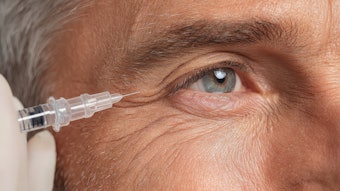
Ozempic reached mainstream status in 2023. Its use for weight loss has sparked a new revolution in weight loss medications. Researchers are now trying to accelerate the potential of GLP-1 medications, with clinical trials evaluating how the drug can further treat other ailments, including heart disease, kidney disease, Alzheimer’s and even male infertility.
Johnny Franco, M.D., board-certified plastic surgeon and owner of Austin Plastic Surgeon, predicted the Ozempic revolution in his article about semaglutide in MedEsthetics’ April 2023 issue.
“Semaglutide and tirzepatide, the GLP-1 medications, are positioned to become the hottest medications in my lifetime,” Dr. Franco said. “It has been a remarkable experience; unlike anything I've witnessed in my medical career. The impact of medication has been truly transformative, initially for diabetes and subsequently at the epicenter of the weight loss revolution.”
Ozempic’s popularity is showing no signs of slowing down and should continue to dominate the weight loss industry in 2024. Dr. Franco points to the percentage of overweight Americans compared to the use of weight loss medication as one indicator of its predicted growth.
“It's interesting to note that despite the staggering prevalence of overweight or obese individuals, only a small percentage are currently on these medications,” Franco said. “With nearly 70% of America falling into the overweight or obese category, I anticipate continued growth in this industry. Medical providers are likely to expand, and we'll see the development of maintenance and long-term programs. However, the challenge lies in deciphering how to effectively manage patients in the long-term for success in their weight management while on these medications.”
Now companies are attempting to find uses for the drug outside of weight loss and diabetes. Clinical trials are underway testing GLP-1 drugs to treat Alzheimer's, Parkinson's and even drug addiction, according to Lexaria, which offers a GLP-1 drug that uses a DehydraTECH drug-delivery formulation and processing technology to improve both delivery and efficacy.
“Both Eli Lilly and Novo Nordisk are actively broadening their portfolios, with more medications in the pipeline that promise even further weight loss benefits,” Dr. Franco said. “Additionally, numerous studies have emerged, highlighting the positive impacts of these medications on various medical issues, including a reduced risk of coronary artery disease.”
Lexaria’s study was performed by a university research center that compared a control group receiving a single dose of a Rybelsus tablet to a treatment group receiving a matching dose of Rybelsus that had been formulated using DehydraTECH processing-technology enhancements.
Per the study, 24 hours after administration, blood glucose levels in the Rybelsus control group were unchanged from baseline, compared to a 5.01% reduction for the DehydraTECH GLP-1 treatment group. The data showed the control group experienced a 21.7% spike in glucose levels after a meal, versus just a 6.2% increase in the DehydraTECH treatment group.
“Given these advancements, it is likely that these medications will not only continue to expand their reach but also become a standard in preventive medicine in the United States,” stated Dr. Franco. “The growing body of evidence supporting their efficacy suggests a broader application beyond weight loss, paving the way for a significant role in overall health management.”
Lexaria is planning more human pilot studies that are expected to test at least one additional GLP-1 drug as well as test an oral dissolvable that is not required to be swallowed. Lexaria also intends to study DehydraTECH-GLP-1 in a multiweek human clinical trial to examine both diabetes-related control (in part via reduced blood sugar levels) as well as weight loss and side effects.
With its growing potential applications, GLP-medications are set to have an even bigger impact on aesthetic medicine than they did in 2023.
“I believe that GLP medications are poised to create a paradigm shift in the field of aesthetic medicine, establishing themselves as a mainstay in ensuring patients achieve their optimal physical condition,” Dr. Franco said. “Over the next 5 to 10 years, I anticipate a transformation in the procedures we use. In my lifetime, there hasn't been a medication with a more significant impact on both our society and health.”











